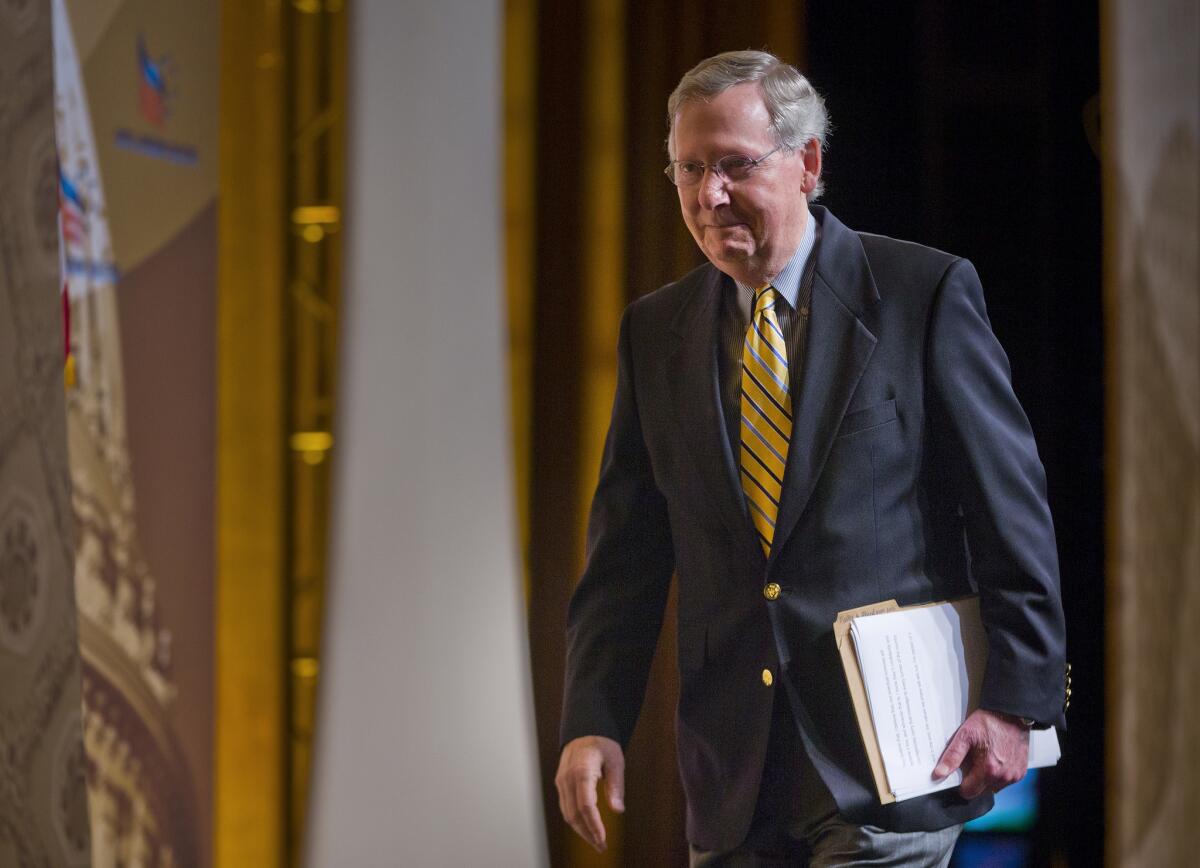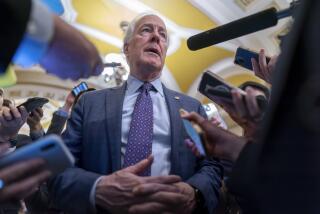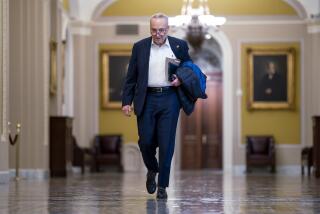Opinion: Deft maneuvering by McConnell gives free traders a key win

Senate Majority leader Mitch McConnell, R-Ky., walks off stage after speaking at the Road to Majority 2015 convention in Washington on June 19.
Chalk up another one for Senate Majority Leader Mitch McConnell.
The Kentucky Republican steered the hotly disputed “fast track” bill (HR 2146) through its toughest test Tuesday, getting the 60 votes needed to prevent a filibuster and clear the way for a final vote. Free-trade supporters are thus poised to reverse the defeat they suffered June 12, when House Democrats joined conservative Republicans in blocking a previous package containing the fast-track bill.
That defeat embarrassed not only President Obama, who needs fast-track authority to complete the major trade deals he’s negotiating with Pacific nations and Europe, but also the House GOP leadership, which is strongly pro-free trade. As I noted earlier this month, top Republicans underestimated the willingness of House Democrats to vote against a program they love and that Senate Democrats fought for -- Trade Adjustment Assistance, which offers extra unemployment and training benefits to U.S. workers displaced by trade -- as a way to stop fast track from moving forward.
McConnell had gotten fast-track authority through the Senate initially by combining it, at Democrats’ insistence, with a bill updating and extending the Trade Adjustment Assistance program, which is due to expire Sept. 30. Although the TAA is widely opposed by Republicans, who argue that it’s ineffective and costly, McConnell sold the compromise to enough members of his caucus to get the package through.
House Speaker John A. Boehner (R-Ohio), however, was not able to work the same magic in his chamber. With Republicans voting overwhelmingly for the fast-track portion of the bill but against the trade assistance portion, Democrats were able to block the package by voting in droves against the latter.
Here’s where McConnell, who’s been more adept than predecessor Harry Reid (D-Nev.) at building bipartisan support, came to the rescue. The House took up a new version of the fast-track bill last week without the trade assistance program and passed it, as the centrist Democrats who’d supported the earlier version continued to support the truncated one. A key part of the deal was the promise that the House would take up the TAA extension again after the Senate acted.
Meanwhile, McConnell persuaded pro-trade Senate Democrats to vote to prevent a filibuster on the pure fast-track bill by assuring them that TAA would get another vote and that it would be packaged with something likely to pass both chambers. Specifically, the proposed six-year extension of the assistance program is being combined with a measure to promote trade with sub-Saharan Africa (which has strong bipartisan support) and help the steel industry ward off subsidized imports (which is backed by steel-state lawmakers from both parties).
The majority leader was joined in the sales effort by the top Democrat on the Senate Finance Committee, Ron Wyden of Oregon, and the Obama administration. Reid, meanwhile, remained solidly in the “no” column.
In essence, McConnell was asking Democrats to trust him not to leave them twisting in the wind on trade assistance. And 13 of them did, just enough to invoke cloture despite the objections from five Republicans, including former fast-track supporter (and current presidential candidate) Ted Cruz (R-Texas).
That was a remarkable show of faith across party lines, particularly on a tough vote on a closely watched issue. We’ll find out over the next few days whether McConnell and Boehner can deliver on the second half of the bargain.
Follow Healey’s intermittent Twitter feed: @jcahealey
More to Read
A cure for the common opinion
Get thought-provoking perspectives with our weekly newsletter.
You may occasionally receive promotional content from the Los Angeles Times.











